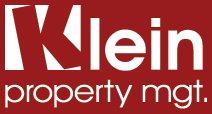What authority is given to boards of condominiums and cooperative corporations to impose and enforce fines respectively on condo unit owners and cooperative shareholder-tenants who violate building house rules. Boards of condominiums and cooperative corporations have almost unlimited powers over their buildings’ operations and the manner in which condominium unit owners and cooperative shareholders may utilize the apartments and common spaces in their buildings. Unless the conduct amounts to egregious discrimination between unit owners or shareholders similarly situated, self-dealing, or other bad faith or outright unlawful action, the business judgment rule precludes judicial second-guessing of board decision-making.
Nevertheless, boards must act within the boundaries of the authority provided to them by statute and/or by their buildings’ governing documents and by-laws. For condominiums, board authority to fine unit owners and residents is grounded in the Condominium Act and in each condominium’s declaration and by-laws. For a cooperative, the authority is determined by the provisions included in its certificate of incorporation, the proprietary lease, and by-laws.
Condominiums
Section 339-j of the Condominium Act grants boards express authority to impose monetary fines on “each unit owner” who does not “comply strictly” with the “bylaws, rules, regulations, resolutions and decisions adopted pursuant thereto.” As further prescribed therein:
Failure to comply with any of the same shall be ground for an action to recover sums due, for damages or injunctive relief or both maintainable by the board of managers on behalf of the unit owners or, in a proper case, by an aggrieved unit owner.
Thus, where a unit owner violates a condominium’s by-law or other duly adopted rule or regulation, the board has statutory authority to fine or maintain an action against the offending unit owner. The inquiry for the court then focuses on (a) whether the board was authorized to adopt the specific rule or regulation at issue, or (b) whether the fine imposed on the unit owner is reasonable.
From the NY Times – 1989
DOES a condominium association or co-operative corporation have the right to fine a resident who repeatedly leaves his umbrella and galoshes in the corridor, in violation of the house rules? And what if that person is also tardy in paying regular monthly charges? Does the board have the right to assess a late fee?
The right of a condo or co-op board to impose fines or sanctions has long been mired in controversy and conflicting legal opinion because the rights vary from state to state and also because the rights depend, in many cases, on the provisions of the governing documents of the associations and corporations.
According to Gurdon Buck of Hartford, group chairman of the American Bar Association’s Committees on Condominiums, only about 20 states have passed enabling legislation permitting fines if house rules are broken. Without such legislation, a fine is open to legal challenge.
But some trends are emerging that could help boards set enforcement policies that are both legal and effective.
First, it is necessary to separate the violation of a house rule from failure to pay monthly charges. The right to charge a late fee, or a fine, is far more likely to be upheld in court. In a recent Texas case, San Antonio Villa Del Sol Homeowners Association v. Miller, an appeals court even upheld the right to turn off the unit owner’s utilities for failure to contribute a proportionate share of the costs after due notice had been given.
or association can charge whatever it chooses. The fine must be ”reasonable,” noted Richard Siegler, a Manhattan lawyer specializing in co-op law. At most, it should not exceed the state’s usury ceiling. In New York, for example, that ceiling is 25 percent a year, so even 5 percent a month could be construed as usurious since it adds up to 60 percent a year. Indeed, in a 1975 case, 943 Lexington Avenue v. Niarchos, the Appellate Division of the State Supreme Court deemed 5 percent a month excessive. But, to confuse matters, a lower court, in Ray v. 169 Spring Owners Corporation, a 1988 case, found 5 percent a month ”reasonable.”
In the absence of consensus Mr. Siegler recommends that New York co-ops or condominiums charge no more than 2 percent a month on an outstanding balance. Such limits are one reason why more boards are turning to acceleration for enforcement. Acceleration requires the entire year’s maintenance to be paid in full as soon as monthly payments are at least 30 days overdue.
”It’s a powerful tool,” said Bob Kirkland, president of Professional Property Managers of Virginia Beach, Va., which manages 72 associations. ”The first phone call I always get after we have sent one of these letters is to ask, ‘How can I get out of acceleration?’ Well, you can’t.” Although it is customary to provide the right of appeal to the association’s executive board, relief is rarely granted, since directors do not want to face charges of discrimination.
The right of acceleration, say lawyers, is frequently included as a specific remedy in governing documents. If those documents are silent it is probably implied anyway, since the entire year’s charges are technically due at the start of each year. But to be certain, Mr. Buck recommends that each time the board sets a new assessment it state that the full amount is due at the start of the fiscal year. The right to pay monthly then becomes merely a convenience that can be revoked.
Acceleration, noted Mr. Kirkland, can also be used in conjunction with notifying a tardy resident’s mortgage lender of the delinquency, since a lender often has the right to demand repayment of a mortgage in full if the monthly charges are not being paid.
The right to levy a fine when a house rule has been broken is more tenuous. It is clearly O.K. in some states, like Connecticut, which have adopted community association laws that specifically grant such powers. But in states like New York, which do not, lawyers say fines are generally eschewed or else they must be couched in such terms as ”liquidated damages” – assuming the building or complex has actually suffered damages.
IRRESPECTIVE of the right, it is no longer the remedy of choice anyway. ”Fines are usually not appropriate and rarely effective,” said David Mercer, a lawyer in Falls Church, Va., who specializes in rules enforcement for community associations. Even when they are legal, he noted, the courts are reluctant to approve fines of any significant size unless there is property damage.
Consider Galaxy Towers, a 1,075-unit condominium in Gutenberg, N.J. A few years ago, a resident refused to provide the managers with a duplicate key to his unit – a clear violation of house rules. The association imposed a fine, a right provided in its master deed. The judge upheld the right to fine in principal, but the total amount payable – which at $25 a day had reached $11,000 – was capped at $1,000.
Fines can also be difficult to collect. Lawyers warn that the association may not have the right to place a lien on a unit for a fine resulting from a house-rule infraction. And often the repeat offender is more willing to pay a fine than mend his ways.
Denial of privileges, such as access to a favored parking space or the swimming pool, has proven more effective. However, the particular penalties likely to be associated with a certain offense should be promulgated in advance, said Mr. Buck.
Doug Kleine, director of research for the Community Associations Institute, the national network of co-op and condominium leaders and their advisers, recommends setting up a grievance or covenants committee, a rotating panel of residents appointed to hear violation cases. A hearing before peers is also normally required before a fine can be imposed in states permitting fines. It is also more equitable before imposing a sanction.
Further, it seems to achieve cooperation, say managers. It allows the violator to tell his side of the story, helps the association explain the need for the rule and lets both sides work out a compromise.
Peer pressure and constant reminders in newsletters and memos seem to change habits, too. Mr. Siegler tells how a 600-unit co-op in New York City persuaded residents to stop using the main passenger elevators while transporting laundry carts or pets. The co-op hired a guard for a few weeks. The guard stood by the elevator and repeatedly reminded offenders that they should use the back elevators. Soon, proper elevator use became a building tradition.
At Klein Property Management we work with our boards to assist them so that they can better understand their roles as Board Members and bringing quality of life to their community or building. Please give us a call at 732 446-0611 if we can be of assistance or email us at [email protected].




